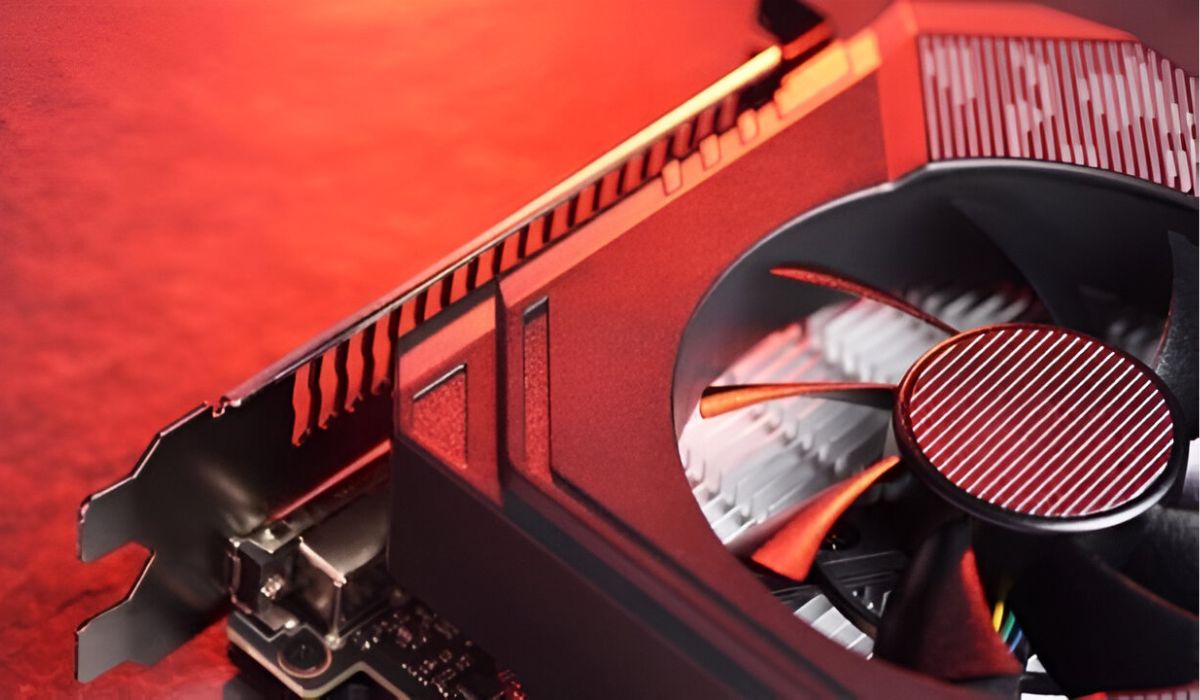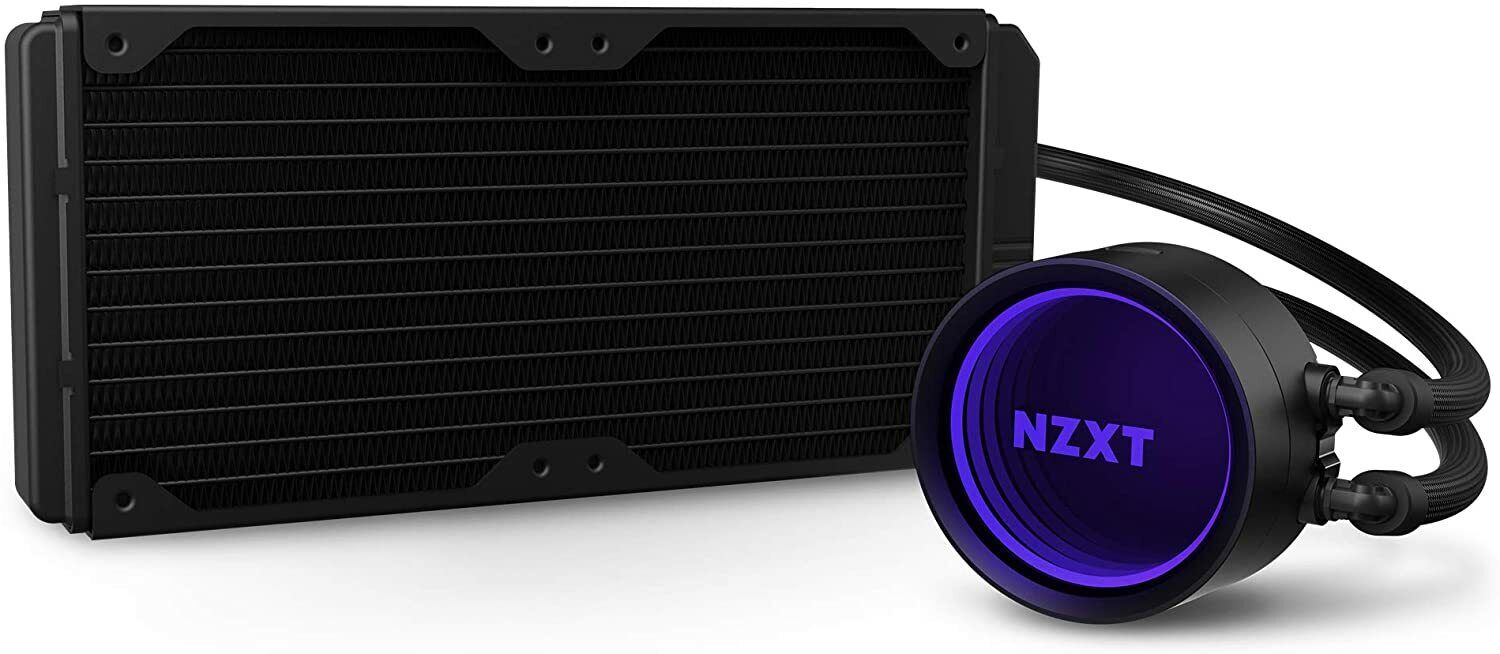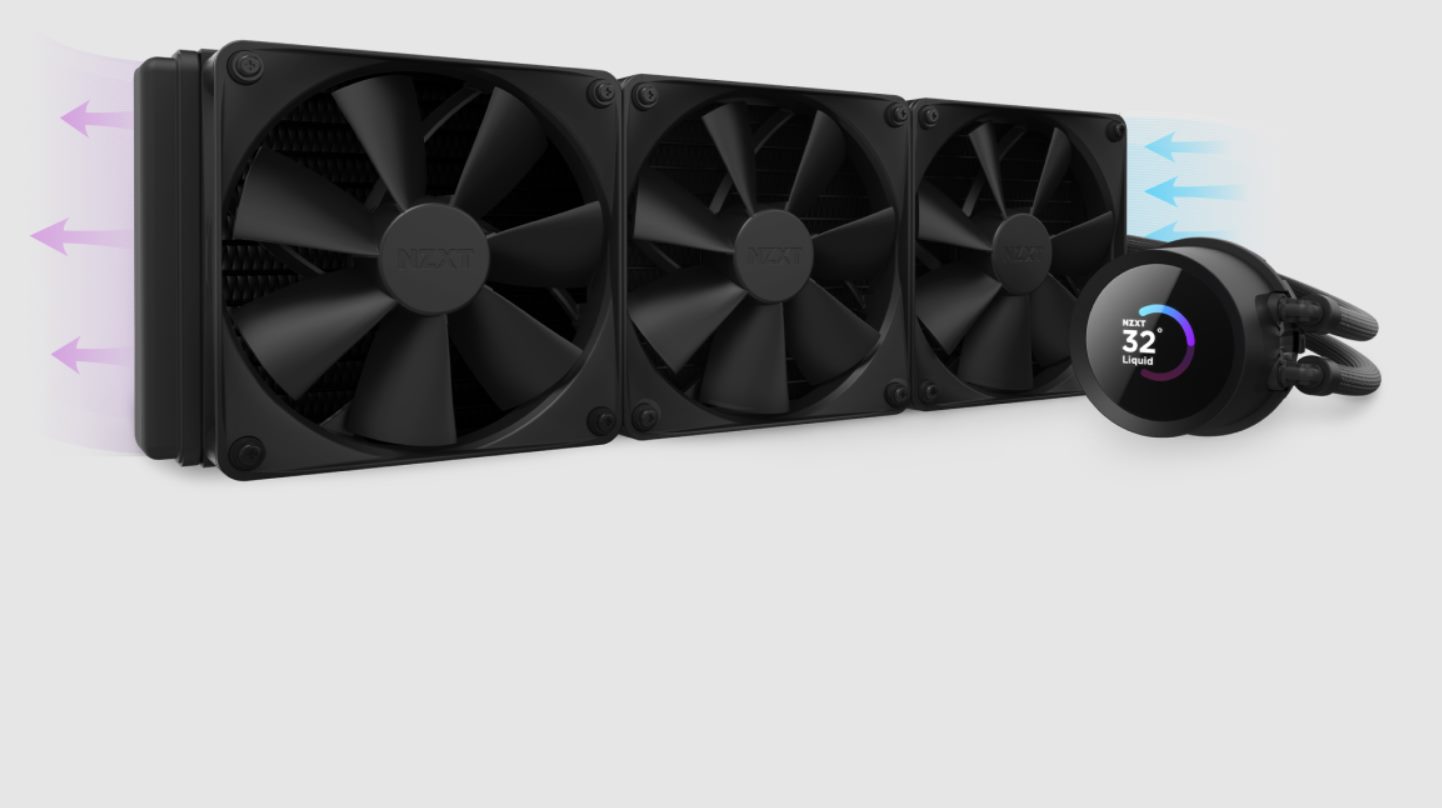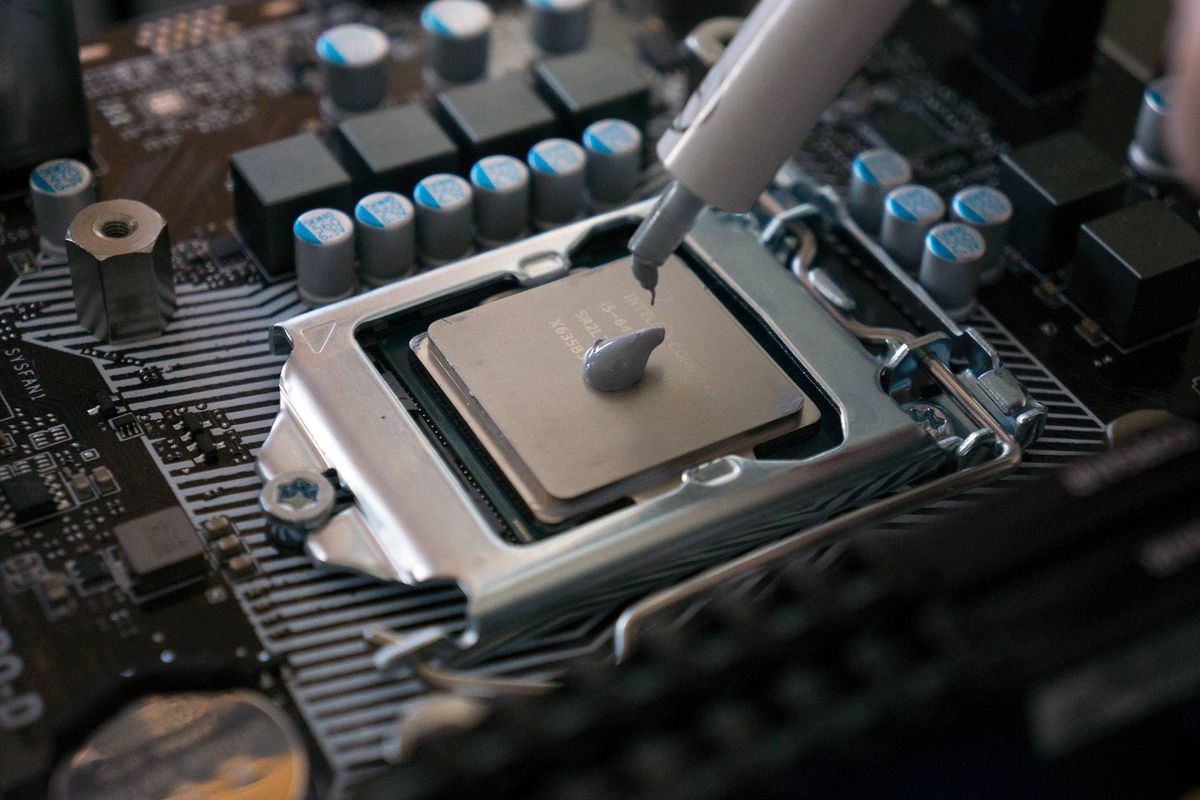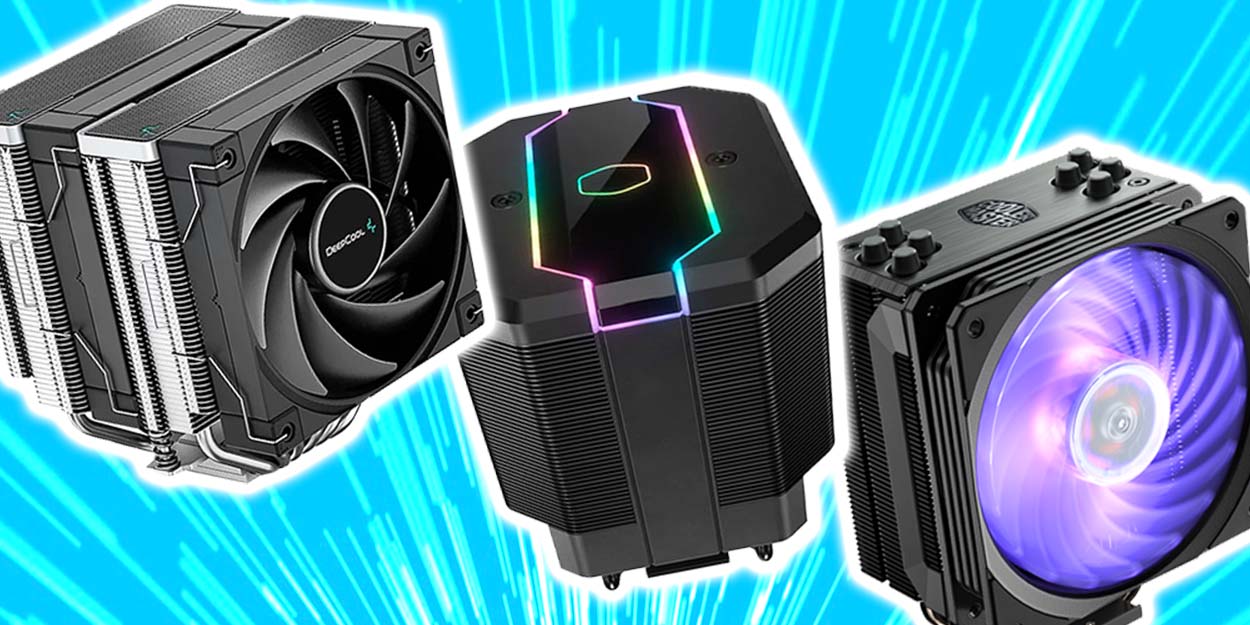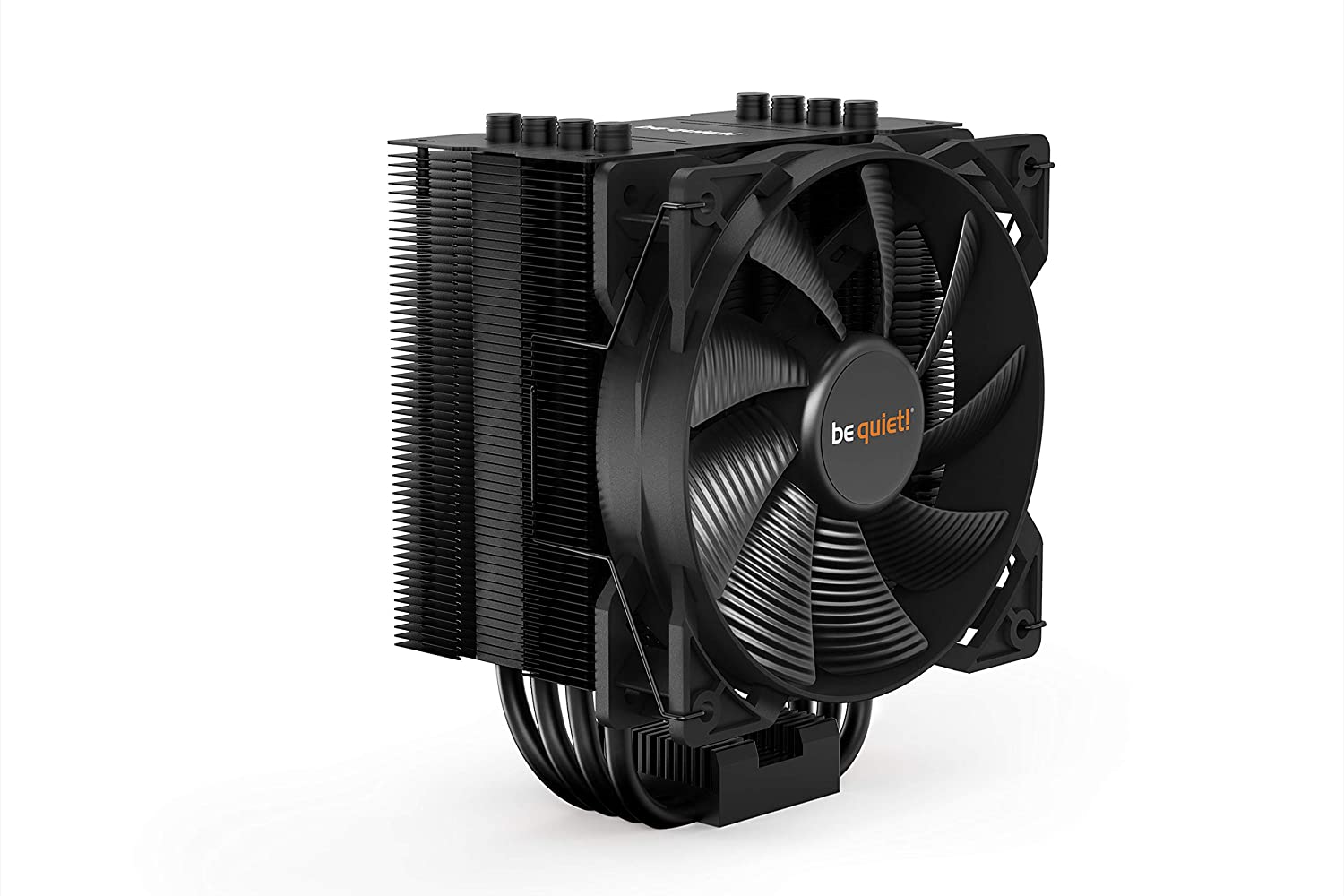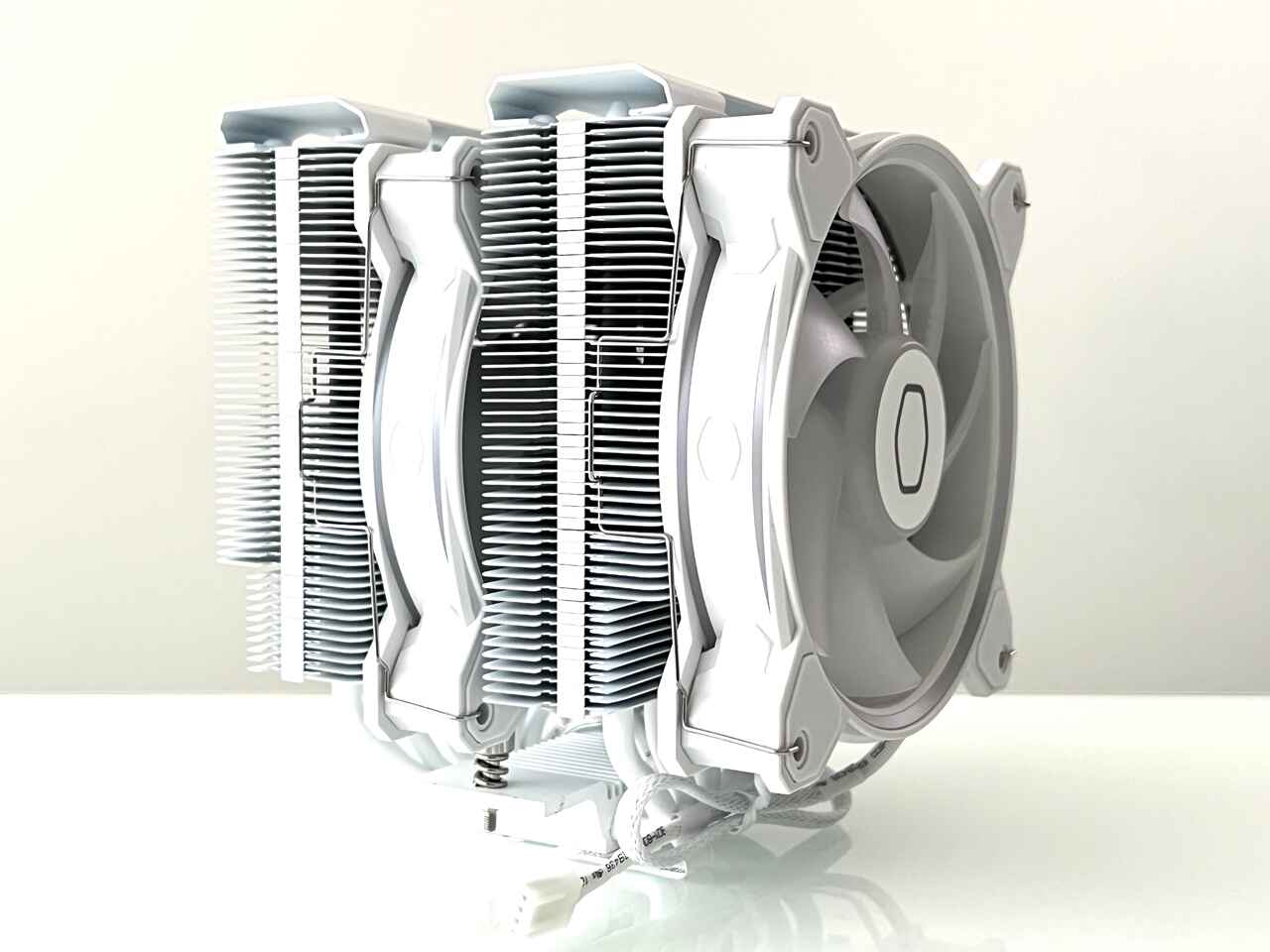Introduction
A CPU cooler plays a crucial role in keeping your computer’s processor within safe operating temperatures. Over time, however, the efficiency and performance of a CPU cooler may start to decline. This raises an important question: how long does a CPU cooler last?
The lifespan of a CPU cooler can vary depending on several factors, including the type of cooler, the quality of its construction, usage patterns, and maintenance. By understanding these factors and taking proactive measures, you can effectively extend the life of your CPU cooler and ensure the optimal performance of your computer.
In this article, we will explore the various factors that affect the lifespan of a CPU cooler, discuss the different types of coolers and their longevity, and provide tips on how to identify signs of a failing cooler. Additionally, we will offer maintenance suggestions to help you extend the lifespan of your CPU cooler and discuss whether upgrading or replacing a cooler is the best solution.
By the end of this article, you will have a clear understanding of what influences the lifespan of a CPU cooler and how to maximize its longevity to keep your computer running smoothly and efficiently.
Factors Affecting the Lifespan of a CPU Cooler
Several key factors can influence the lifespan of a CPU cooler. Understanding these factors will allow you to take appropriate measures to maximize the longevity of your cooling system. Here are the main factors to consider:
- Cooler Type: The type of CPU cooler you choose can have a significant impact on its lifespan. Generally, air coolers tend to have a longer lifespan compared to liquid coolers. This is because air coolers have fewer moving parts and are less prone to mechanical failure.
- Build Quality: The build quality of a CPU cooler is an essential factor in determining its lifespan. Coolers made with high-quality materials and components are likely to last longer and provide better performance. Investing in a reputable brand known for its quality craftsmanship is recommended.
- Usage Patterns: The way you use your computer can also affect the lifespan of the CPU cooler. Running the processor at high loads for extended periods can put more stress on the cooler, potentially shortening its lifespan. If you frequently engage in resource-intensive tasks like gaming or video editing, it’s essential to monitor temperatures and provide adequate cooling.
- Cleanliness: Keeping the CPU cooler clean is crucial for its proper functioning and longevity. Dust and debris can accumulate over time, obstructing airflow and reducing cooling efficiency. Regularly cleaning the cooler, fan, and heatsink can help maintain optimal performance and extend the cooler’s lifespan.
- Overclocking: Overclocking, the process of increasing the clock speed of the processor, can significantly increase the heat generated by the CPU. While it can provide performance gains, it also puts additional stress on the CPU cooler. Proper cooling is vital when overclocking, as inadequate cooling can lead to premature failure of the cooler and even the CPU itself.
- Environmental Factors: The environment in which your computer operates can impact the lifespan of the CPU cooler. Extreme temperatures, excessive humidity, and exposure to dust or corrosive substances can all affect the cooler’s performance and durability. It’s important to keep your computer in a clean and well-ventilated area to mitigate these environmental factors.
By considering these factors and taking appropriate measures, such as choosing a high-quality cooler, practicing proper usage patterns, maintaining cleanliness, and monitoring environmental conditions, you can significantly extend the lifespan of your CPU cooler. In the next section, we will delve into the different types of CPU coolers and explore their respective lifespans.
Types of CPU Coolers and their Lifespan
When it comes to CPU cooling, there are two main types of coolers to choose from: air coolers and liquid coolers. Let’s take a closer look at each type and explore their respective lifespans:
Air Coolers
Air coolers are the most common and traditional type of CPU coolers. They consist of a heatsink, which dissipates heat, and one or more fans that blow cool air over the heatsink to keep the CPU cool. Due to their simple and robust design, air coolers are known for their longevity.
The lifespan of an air cooler can vary depending on the build quality and usage patterns. A well-maintained air cooler can last anywhere from 5 to 10 years or even longer. Regular cleaning to remove dust and debris, ensuring proper airflow, and avoiding excessive overclocking can help prolong the lifespan of an air cooler.
Liquid Coolers
Liquid coolers, also known as AIO (All-In-One) coolers, use a combination of a pump, tubing, radiator, and fans to cool the CPU. They are generally more efficient than air coolers and provide better cooling performance, especially for heavily overclocked systems or high-end CPUs.
The lifespan of a liquid cooler can vary depending on several factors. The pump is often the component with the shortest lifespan, typically ranging from 3 to 5 years. However, higher-end liquid coolers can have a longer lifespan. It’s worth noting that the fans and radiator also need regular maintenance to ensure optimal performance.
Proper installation, regular monitoring of coolant levels, and periodic cleaning of the radiator and fans will help extend the lifespan of a liquid cooler. It is also important to handle the cooler with care during transportation to prevent any damage to the fragile components.
When it comes to choosing between air coolers and liquid coolers, it’s essential to consider your specific needs, budget, and preferences. While liquid coolers can provide better cooling performance and aesthetics, air coolers are generally more reliable and have a longer lifespan.
In the next section, we will discuss the signs that indicate a failing CPU cooler, allowing you to address any issues before they cause damage to your computer components.
Air Coolers
Air coolers, also known as CPU air coolers or air-based cooling systems, are the most common and widely used type of CPU cooler. They feature a heatsink made of metal fins and one or more fans that blow air over the heatsink to dissipate the heat generated by the processor.
One of the primary advantages of air coolers is their longevity. With their simple design and fewer moving parts, air coolers tend to have a longer lifespan compared to liquid coolers. A well-maintained air cooler can last anywhere from 5 to 10 years, or even longer in some cases.
The lifespan of an air cooler can be influenced by various factors, including the build quality of the cooler, usage patterns, and maintenance practices. A high-quality air cooler made with durable materials is likely to have a longer lifespan. Investing in a reputable brand known for its reliability and performance is recommended for maximizing longevity.
Proper usage patterns can also contribute to extending the lifespan of an air cooler. Running the CPU at high loads for extended periods can put additional stress on the cooler, potentially shortening its lifespan. It is essential to monitor temperatures and ensure adequate cooling to prevent overheating.
Maintenance is crucial for optimizing the lifespan of an air cooler. Regular cleaning is necessary to remove dust and debris that can accumulate on the heatsink and fan. Dust buildup can obstruct airflow, reducing the cooling efficiency of the cooler. Cleaning the cooler every few months using compressed air or a soft brush can help maintain optimal performance and extend its lifespan.
Another factor to consider is overclocking. Overclocking involves increasing the clock speed of the CPU beyond its default settings to achieve better performance. While it can provide a performance boost, it also generates more heat, increasing the workload on the air cooler. It is important to ensure that the air cooler can handle the increased heat load to prevent damage and premature failure.
In summary, air coolers are reliable and tend to have a longer lifespan compared to liquid coolers. By investing in a high-quality air cooler, practicing proper usage patterns, and performing regular maintenance, you can maximize the lifespan of your air cooler and ensure effective cooling for your CPU.
Liquid Coolers
Liquid coolers, also known as AIO (All-In-One) coolers, have gained popularity in recent years due to their superior cooling performance and sleek design. Unlike air coolers, which rely on fans and heatsinks, liquid coolers use a combination of a pump, tubing, radiator, and fans to dissipate heat from the CPU.
Liquid coolers offer several advantages, including better cooling efficiency, quieter operation, and compatibility with smaller form factor cases. However, they typically have a shorter lifespan compared to air coolers due to the more complex nature of their design and the presence of additional components.
The lifespan of a liquid cooler can vary depending on several factors, including the quality of the components, usage patterns, and maintenance practices. The pump is often the component with the shortest lifespan and may need replacement within 3 to 5 years. However, higher-end liquid coolers with more robust pumps can have a longer lifespan.
Regular maintenance is crucial for maintaining the performance and longevity of a liquid cooler. This includes monitoring coolant levels to ensure they are sufficient and clear of any debris or air bubbles that could impede proper circulation. The radiator and fans also require periodic cleaning to remove dust buildup that can hinder airflow and cooling efficiency.
It’s important to handle liquid coolers with care, especially during transportation. Any mishandling or rough handling can damage the fragile components, leading to leaks or pump failure. When installing or removing a liquid cooler, following the manufacturer’s instructions and using proper techniques and tools is essential to minimize the risk of damage.
While liquid coolers offer excellent cooling performance, it’s important to note that they may not always be necessary for every computer setup. Unless you have a high-end processor or engage in heavy overclocking that generates excessive heat, an air cooler may suffice and offer a longer lifespan.
In summary, liquid coolers provide superior cooling performance but generally have a shorter lifespan compared to air coolers. By investing in a high-quality liquid cooler, practicing regular maintenance, and handling the cooler with care, you can maximize its lifespan and enjoy efficient cooling for your CPU.
Signs of a Failing CPU Cooler
A CPU cooler is responsible for maintaining optimal temperatures for your computer’s processor. When a CPU cooler starts to fail, it can lead to overheating, reduced performance, and even permanent damage to your CPU. It’s important to be aware of the signs that indicate a failing CPU cooler so that you can take prompt action to address the issue. Here are some common signs to watch out for:
- Increased Temperatures: One of the primary indicators of a failing CPU cooler is an increase in CPU temperatures. If you notice that your CPU is running at higher temperatures than usual during normal tasks or idle, it could be a sign that the cooler is no longer effectively dissipating heat.
- Loud and Unusual Noises: A failing CPU cooler may produce loud or unusual noises. These can include buzzing, grinding, or rattling sounds coming from the cooler or its fan. These sounds are typically an indication of a worn-out bearing in the fan or other mechanical issues.
- Inconsistent Fan Speed: If you observe the CPU fan speed fluctuating abnormally or not reaching the expected speed, it may be a sign of a failing cooler. This can lead to inadequate cooling and increased temperatures.
- System Crashes or Blue Screens of Death (BSOD): When a CPU overheats due to a failing cooler, it can cause system crashes or trigger the infamous Blue Screen of Death. These sudden system failures and error messages often indicate a severe overheating issue that needs immediate attention.
- Performance Degradation: As a CPU overheats due to inadequate cooling, it may automatically throttle its performance to prevent damage. If you notice a significant drop in system performance or slower processing speeds, it could be a sign of a struggling CPU cooler.
If you spot any of these signs, it’s crucial to address the issue promptly to prevent further damage. First, check that the CPU cooler is properly installed and that all connections are secure. Ensure that the fan is spinning correctly and that the heatsink is clean and free from dust or debris. If the issue persists, it may be necessary to consider replacing the failing CPU cooler with a new one to restore optimal cooling performance.
Regularly monitoring your CPU temperatures, performing routine maintenance, and being vigilant for any signs of a failing CPU cooler can help you detect and address problems early on, ensuring the longevity and stability of your computer system.
Extending the Lifespan of a CPU Cooler
Proactively taking steps to extend the lifespan of your CPU cooler can help ensure reliable and efficient cooling for your computer system. By following these tips and practices, you can maximize the longevity of your CPU cooler:
- Choose a High-Quality Cooler: Investing in a high-quality CPU cooler from a reputable brand can make a significant difference in its lifespan. Opt for coolers made with durable materials and components for better longevity and performance.
- Ensure Proper Airflow: Good airflow is crucial for effective cooling. Make sure that the CPU cooler is installed correctly and that the airflow inside your computer case is optimized. Proper cable management, adequate case fans, and unobstructed airflow paths can help maintain optimal cooling performance.
- Monitor CPU Temperatures: Regularly monitoring your CPU temperatures using software utilities or BIOS can help you identify any potential cooling issues early on. High temperatures can accelerate the degradation of the CPU cooler. If you notice unusually high temperatures, it’s essential to investigate and address the underlying cause promptly.
- Perform Regular Cleaning: Dust and debris can accumulate on the CPU cooler’s heatsink and fan over time, obstructing airflow and reducing cooling efficiency. Cleaning the cooler regularly using compressed air or a soft brush can help maintain optimal cooling performance and extend the cooler’s lifespan.
- Avoid Excessive Overclocking: Overclocking your CPU can significantly increase the heat generated, putting more strain on the CPU cooler. Excessive overclocking can lead to higher temperatures and potentially shorten the lifespan of the cooler. If you choose to overclock, make sure you have adequate cooling solutions in place to handle the increased heat load.
- Monitor Environmental Factors: Extreme temperatures, excessive humidity, and exposure to dust or corrosive substances can impact the lifespan of your CPU cooler. Keep your computer in a clean and well-ventilated environment to mitigate these factors and minimize potential long-term damage to the cooler.
By following these practices, you can help extend the lifespan of your CPU cooler and ensure reliable and efficient cooling for your computer system. However, it’s important to remember that even with proper care, CPU coolers do have a finite lifespan, and eventually, they may need to be replaced to maintain optimal performance and prevent overheating.
In the next section, we will discuss whether it is more beneficial to upgrade or replace a CPU cooler when it reaches the end of its lifespan.
Maintenance Tips for Longevity
Performing regular maintenance on your CPU cooler is key to ensuring its longevity and optimal performance. Here are some maintenance tips that can help prolong the lifespan of your CPU cooler:
- Clean the Cooler Regularly: Dust and debris can accumulate on the CPU cooler’s heatsink and fan, obstructing airflow and reducing cooling efficiency. Regularly cleaning the cooler using compressed air or a soft brush can help remove the buildup and maintain optimal cooling performance.
- Monitor and Adjust Fan Speed: Monitoring and adjusting the fan speed can help optimize cooling performance. Many modern motherboards and BIOS settings allow you to control the fan speed based on temperature. Ensuring that the CPU fan is running at the appropriate speed can help maintain proper cooling and reduce unnecessary wear on the fan.
- Inspect and Replace Thermal Paste: Thermal paste is a crucial element in transferring heat between the CPU and the heatsink. Over time, the thermal paste may dry out or become less effective. Periodically inspecting and replacing the thermal paste can help improve heat dissipation and ensure efficient cooling.
- Monitor CPU Temperatures: Regularly monitoring the temperatures of your CPU can help you detect any cooling issues early on. This allows you to take corrective action before the cooler’s performance is significantly compromised. Use software utilities or BIOS to monitor temperatures and address any abnormal spikes or sustained high temperatures promptly.
- Check for Proper Mounting: Ensure that the CPU cooler is securely and correctly mounted on the processor. Loose or improper mounting can result in poor heat transfer and reduced cooling efficiency. Following the manufacturer’s instructions and guidelines for installation, including applying the appropriate pressure and using the correct mounting hardware, is essential.
- Monitor and Control System Dust: Dust buildup inside your computer can impact the cooling performance of the CPU cooler. Regularly clean the entire system, including the fans, filters, and air vents, to minimize dust accumulation. Consider using dust filters on intake fans to reduce the amount of dust that enters the system.
By implementing these maintenance tips, you can help maximize the lifespan of your CPU cooler and maintain efficient cooling performance for your computer system. Regular cleaning, monitoring temperatures, adjusting fan speed, inspecting thermal paste, ensuring proper mounting, and controlling system dust are essential practices in keeping your CPU cooler in optimal working condition.
In the next section, we will discuss whether it is more beneficial to upgrade or replace a CPU cooler that has reached the end of its lifespan.
Upgrading vs. Replacing a CPU Cooler
When your CPU cooler reaches the end of its lifespan or no longer meets your cooling needs, you may be faced with a decision: whether to upgrade or replace it. Let’s examine the factors to consider when making this choice.
Performance: Consider whether your current CPU cooler is providing adequate cooling for your processor. If you’re experiencing high temperatures or performance throttling, upgrading to a more efficient and powerful cooler may be necessary. However, if your current cooler is still performing well, a replacement may not be immediately needed.
Compatible Upgrades: Assess whether your computer’s case and motherboard can accommodate an upgrade. Some high-performance coolers, especially larger liquid coolers, require sufficient space and specific socket compatibility. Ensure that your system supports the upgraded cooler before making a decision.
Overclocking: If you’re planning to overclock your CPU or have a high-end processor that generates substantial heat, upgrading to a more robust cooler may be beneficial. Overclocking puts additional strain on the CPU cooler, and a more capable cooler can help keep temperatures in check.
Budget: Consider your budget when deciding whether to upgrade or replace. Upgrading to a higher-end cooler typically comes with a higher price. Assess whether the potential performance gains and extended lifespan justify the cost of the upgrade. If budget is a concern, replacing with a similar or slightly better cooler may be a more affordable option.
Future-Proofing: If you anticipate future upgrades to your computer system, such as a more powerful CPU or increased heat output, it may be wise to invest in a higher-end cooler. This can help provide sufficient cooling for future upgrades, prolonging the lifespan and versatility of your cooling solution.
Maintenance and Longevity: Consider the maintenance requirements and expected lifespan of the cooler you choose. Liquid coolers often require more upkeep, such as periodic refilling of coolant or checking pump functionality. Air coolers, on the other hand, typically require less maintenance. Assess which type of cooler aligns with your maintenance preferences and aligns with the desired lifespan.
Ultimately, the decision to upgrade or replace your CPU cooler depends on your specific needs, budget, and future plans for your computer system. If your current cooler is no longer performing adequately, lacks compatibility with new components, or if you’re looking for better overclocking capabilities, upgrading to a more advanced cooler may be the ideal choice. However, if your current cooler is still functioning well and meets your cooling requirements, simply replacing it with a similar or slightly better model would be sufficient.
In the final section, we will summarize the key points discussed in this article and conclude the topic of CPU cooler lifespan and maintenance.
Conclusion
The lifespan of a CPU cooler depends on various factors, including the type of cooler, build quality, usage patterns, and maintenance. Air coolers are known for their longevity, lasting around 5 to 10 years with proper maintenance. On the other hand, liquid coolers have a shorter lifespan, ranging from 3 to 5 years on average.
Understanding the signs of a failing CPU cooler, such as increased temperatures, unusual noises, or system crashes, is crucial for timely detection and resolution of cooling issues. Regular maintenance, including cleaning the cooler, monitoring temperatures, and ensuring proper mounting, can help extend the lifespan of your CPU cooler.
In some cases, upgrading to a more advanced cooler may be necessary to meet increased cooling requirements, especially for overclocking or high-end processors. However, if your current cooler is still performing adequately and meets your needs, simply replacing it with a similar or slightly better model can suffice.
Maintaining a well-ventilated and clean environment for your computer system, avoiding excessive overclocking, and choosing a high-quality cooler from a reputable brand are all important factors in maximizing the lifespan of your CPU cooler.
By following these guidelines, you can ensure that your CPU cooler operates efficiently, keeping your processor at optimal temperatures for stable and reliable performance. Regular maintenance and attention to the signs of a failing cooler will help you catch any issues early and take appropriate action to prevent damage to your CPU and overall system.
Remember, the lifespan of a CPU cooler is not indefinite, and eventually, it may need to be replaced to maintain proper cooling. By staying vigilant and proactive, you can ensure the longevity and performance of your CPU cooler, contributing to the overall longevity and smooth functioning of your computer system.







